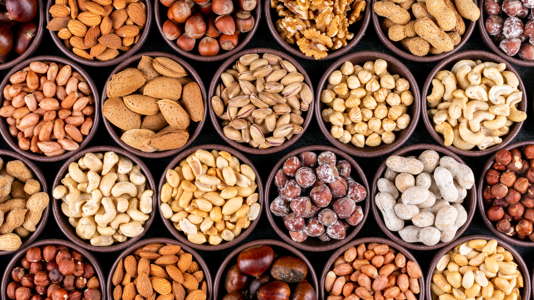Beetroot (Chukandar): Uses, Benefits, Side Effects and More!

Introduction:
Easily available, bright and delicious, a carrot is a seasonal root. It is an inexpensive vegetable loaded with nutrients. It contains a good amount of beta-carotene (vitamin A). Beetroot, on the other hand, is a red-bulb root and densely packed with antioxidants.
Blending both these ingredients can make a truly nutrient-rich juice to sip on don’t you think? Carrot and beetroot juice can be a healthier, refreshing drink than many other juices, and one that will surely refresh and rejuvenate you.
Carrot beetroot juice contains a high amount of essential bioactive compounds, making it an excellent morning drink to kick start your day. It has beneficial properties necessary for our daily functioning.1
Let’s learn to make carrot beetroot juice at home. You can use locally available carrots and beetroots. Wash them thoroughly to remove the germs, peel, cut and blend them into a juicer. Filter the red juice obtained using a muslin cloth. Voila, your fresh carrot beetroot juice is ready to be served; enjoy this delicious drink in the morning to have a super healthy start to the day.
Nutritional Value of Carrot Beetroot Juice:
Carrot beetroot juice contains bioactive compounds such as anthocyanins, carotenoids, vitamin C, sugars, antioxidants, betanin and phenols.1 The nutritional value of carrot beetroot juice is as follows:
| Nutrients components | Values/100 ml |
| Energy | 42 kcal |
| Carbohydrate | 9.7 g |
| Protein | 0.84 g |
| Sugar | 6.33 g |
| Fibre | 0.4 g |
| Iron | 0.15 mg |
| Calcium | 8 mg |
| Sodium | 21 mg |
| Vitamin A | 3800 IU |
| Vitamin C | 35.4 mg |
| Calcium | 8 mg |
Table 1: Nutritional value of carrot beetroot juice per 100 grams
Potential Uses of Beetroot:
As a natural nitric oxide (NO) source, beetroot may act as a potent antioxidant and anti-inflammatory food. It may help manage and prevent several health conditions that are caused due to the low availability of NO, such as heart and brain disorders. Beetroot offers several potential uses, which are discussed in greater detail below.
1. Potential Uses of Beetroot for Heart
Endothelial dysfunction (a disease that affects blood vessels) is the reason for many heart diseases and problems, such as hypertension and atherosclerosis. Beetroot may help regulate endothelial function, potentially reducing heart disease risks.1 Beetroot may also help lower blood pressure and blood cholesterol levels in the blood.2 Before using beetroot for these properties or any heart-related conditions, make sure you consult your healthcare provider and get a proper diagnosis and treatment. Avoid using beetroot or any other herb as medicine without consulting your physician.
2. Potential Uses of Beetroot for Brain
Reduced blood circulation to the brain is the primary reason for the deterioration of cognitive functions (thinking, remembering and reasoning). Reduced blood flow to the brain can lead to brain damage, Alzheimer’s disease, or dementia. Beetroot might help you improve blood circulation to the brain and avoid damage to cognitive functions.1 If you are suffering from any brain-related conditions, you need to reach out to your doctor. Do not use beetroot as a means to mitigate or relieve brain-related conditions. Consulting a doctor or psychiatrist will help you make well-informed choices.
3. Potential Uses of Beetroot for Inflammation
Inflammation is the body’s natural response to trauma, infection and other organisms that can harm the individual. Inflammation is nothing but redness, swelling and pain at the affected site. Beetroot contains many potential anti-inflammatory compounds that may interfere with the inflammation pathways. It might help reduce this inflammatory response and subside inflammation.1 However, if you are suffering from inflammation or swelling anywhere in your body, consult with a doctor before using beetroot. Using beetroot for inflammation without consulting a physician will worsen the condition.
4. Potential Uses of Beetroot for Oxidative Damage
Components capable of causing oxidative stress are reactive oxygen and nitrogen species (RONS). These are generated in response to infection, heat damage, and strenuous physical exercise. Excessive exposure of cells to RONS causes oxidative stress. Oxidative stress can damage important biomolecules like DNA, proteins, carbohydrates, and lipids. The antioxidant benefits of beetroot might help protect the cells from oxidative stress and damage.
5. Potential Uses of Beetroot for Cancer
Beetroot might help avoid cancer development owning to its many properties. Beetroot may show anti-proliferative, anti-inflammatory and antioxidant properties that might be helpful in cancer.3 Beetroot could also show anti-cancer properties against breast, lung, stomach, and colon cancer cells line during lab studies.2 However, beetroot should not be used for any health condition like cancer without proper consultation with a doctor.
6. Potential Uses of Beetroot for Athletes
Beetroot juice is known to contain a high amount of nitrates. Intake of nitrates might be beneficial for athletes as it improves sports performance. There are several ways beetroot may help with sports performance. It may help reduce the oxygen consumption of skeletal muscles, reduce muscle stress, delay the onset of muscle fatigue, and increase the force and power output.5 All these potential beetroot benefits can mean that it may have beneficial effects on athletes, but the studies are insufficient to establish the extent of the effect on humans.
How to Use Beetroot:
There are several ways to incorporate beetroot into your diet:
You can make beetroot a part of your regular diet; it can be added to soups, salads, and juices raw or cooked. 2
You can also drink beetroot juice to reap chukandar benefits.5
You should always consult your Ayurvedic physician before consuming beetroot for regular use. They will be the best person to prescribe the correct form and dosage for your health condition. Also, do not discontinue or replace an ongoing modern medicine or treatment with an ayurvedic/herbal preparation without consulting a qualified doctor.
Side Effects of Beetroot (Chukandar):
Beetroot is considered a part of the regular diet. However, there are some reported side effects associated with it:
People who eat beetroot may notice red or pinkish urine and panic; worry not, this is due to the compounds that lend beetroot its typical colour. This is not blood.
Many people have complained of skin allergies after eating beetroot.6
If you experience any of these side effects or allergic reactions after using beetroot, stop its use and contact your healthcare provider immediately.
Precautions to Take with Beetroot:
When using beetroot, you need to follow these precautions
Precautions for pregnant women
Consumption of beetroot is considered acceptable during pregnancy.7 However, like all foods, beetroots should be eaten in moderation.
Precautions for breastfeeding women
Eating beetroot if you are a nursing woman does not lead to nitrate poisoning in the infant. The baby is safe as the nitrate content of beetroot does not leach out significantly in breast milk
Precautions for children
Beetroots have high nitrate content and might cause nitrate poisoning in infants if given directly. They should be avoided in infants aged three months or below.
Before using beetroot for any health effects, talk to your doctor or physician about any precautions you might need to take and understand if you are one of the people who should avoid beetroot. Consulting with your doctor will help you make better choices and avoid adverse health effects.
Interactions with Other Drugs:
Beetroot can decrease digestion transit time; therefore, eating beetroot might reduce the absorption of many oral drugs. On the contrary, the intake of beet fibre diet increased the gastric transit time in obese patients with type 2 diabetes. It is best to avoid beetroot with oral medication.6
Also, if you are taking medicine for any health condition, you can consult your healthcare provider about potential fruits and vegetables to avoid. They will be able to guide you about the safe use of beetroot.



